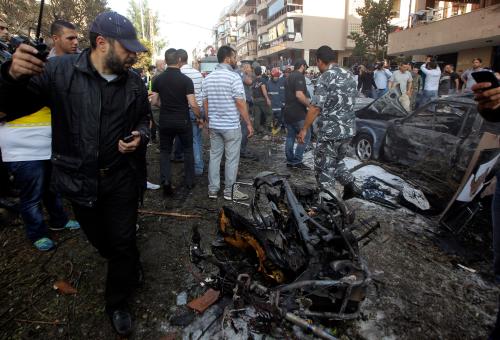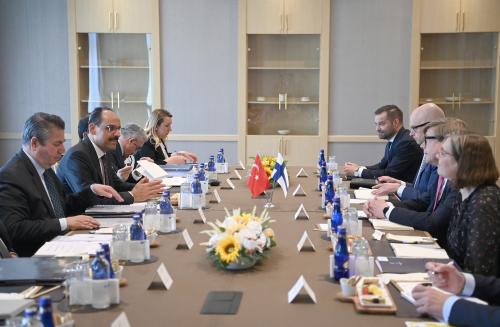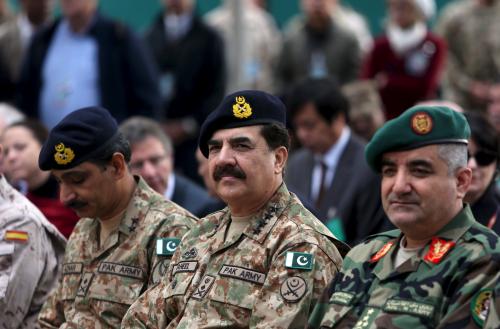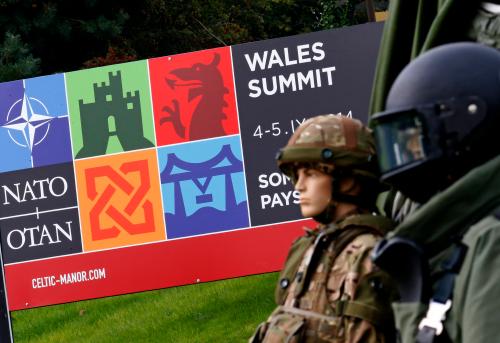Editor’s Note: This article originally appeared in Iranian Sponsorship of Terrorism, a publication of IHS Defense, Risk and Security Consulting, in July 2012, and is reproduced with permission from © IHS (Global) Limited. All rights reserved.
On 16 February 2012, the US Department of the Treasury designated the Iranian Ministry of Intelligence and Security (MOIS), Iran’s primary intelligence organization, for its “support to terrorist groups, such as Al-Qaeda and Al-Qaeda in Iraq… again exposing the extent of Iran’s sponsorship of terrorism as a matter of Iran’s state policy”.
For almost 30 years, Iran has worked with leading terrorist groups, such as Lebanese Hizbullah and Hamas, to advance its interests in the Middle East and has provided these groups with training, funding and weapons. According to the US Department of State’s Country Reports on Terrorism 2010, released on 18 August 2011: “Iran remained the most active state sponsor of terrorism… Iran’s financial, material and logistic support for terrorist and militant groups throughout the Middle East and Central Asia had a direct impact on international efforts to promote peace, threatened economic stability in the Gulf, and undermined the growth and democracy.”
Iranian connections to Hizballah and Palestinian militant groups, such as Hamas and Palestinian Islamic Jihad (PIJ), are well-documented, but its ties to Al-Qaeda remain, for the most part, shrouded in secrecy, or at least concealed in classified channels. Nevertheless, several documents released over the past decade help shed light on Iran’s ties with Al-Qaeda.
For instance, according to The 9/11 Commission Report, published in July 2004, Iran and Al-Qaeda worked together during the early-1990s while senior Al-Qaeda leaders were based in Sudan. In addition, the written works of Al-Qaeda senior leader Sayf al-Adl – who is wanted by the US for his alleged role in the 1998 US embassy bombings in Tanzania and Kenya – also provide a unique insight into Iran’s support for Al-Qaeda, especially in the years leading up to 2001.
Iranian connections to Hizballah and Palestinian militant groups, such as Hamas and Palestinian Islamic Jihad (PIJ), are well-documented, but its ties to Al-Qaeda remain, for the most part, shrouded in secrecy, or at least concealed in classified channels.
These reports document several instances in which Iran has lent support to Al-Qaeda, enabling the group to conduct attacks more effectively and avoid US and coalition counter- terrorism efforts. Nevertheless, distrust between Tehran and the group’s members also appears to have prevented the two sides from developing a closer working relationship. Documents recovered during the raid on Osama bin Laden’s Abbottabad compound in Pakistan in May 2011 show the relationship was “fraught with difficulties,” as described by the Combating Terrorism Center (CTC) report Letters from Abbottabad: Bin Laden Sidelined published on 3 May 2012. According to the report, “references to Iran [in the documents] show that the relationship is not one of alliance, but of indirect and unpleasant negotiations over the release of detained jihadis and their families, including members of Bin Laden’s family. The detention of prominent Al-Qaeda members seems to have sparked a campaign of threats, taking hostages and indirect negotiations between Al- Qaeda and Iran that have been drawn out for years and may still be ongoing.”
These reports only partly describe the nature of connections between Iran and Al-Qaeda, but do at least help to identify several critical Iranian motivations for working with the group. These include Tehran’s desire to gain some leverage over the US, to maintain its options in an often-hostile region, and to deter an Al- Qaeda attack on Iranian territory and interests. At the same time, Iran provides an important lifeline to Al-Qaeda, which continues to suffer from the impact of drone strikes targeting its Pakistan-based leadership.






Commentary
Unlikely Alliance: Iran’s Secretive Relationship with Al-Qaeda
July 31, 2012